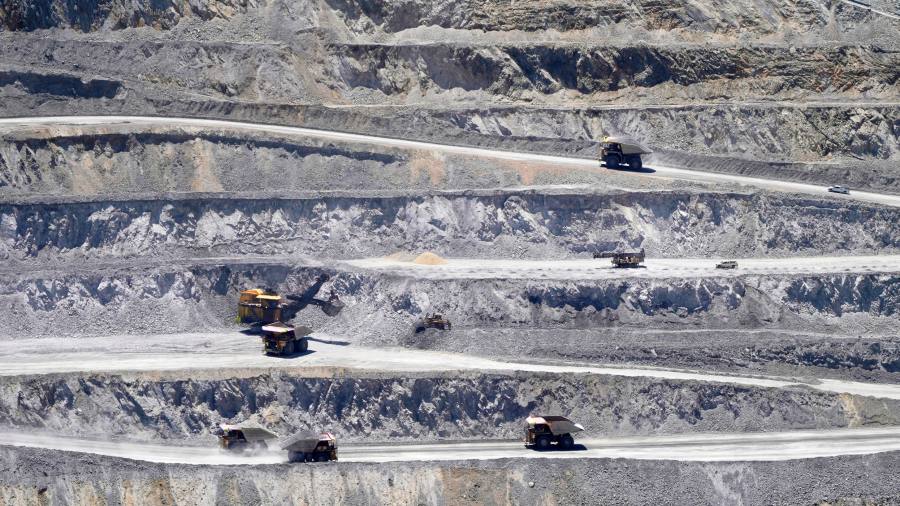
Rio Tinto is looking for opportunities to acquire critical mineral assets such as lithium and nickel, despite admitting it remains “reluctant” to pursue non-organic expansion.
The A$171bn (US$117bn) miner told an investor day in Sydney on Thursday it was “location agnostic” regarding such assets but stressed it would remain disciplined in how it spends its money.
Peter Cunningham, chief financial officer, told reporters on the sidelines of the conference: “On M&A we look, but we’ve got very, very strong discipline on what we do. At the end of the day, it’s got to be a fit with strategy. We’ve got to be the best operator of anything we buy and the value has to be there.”
BHP’s $6.4bn bid for Australian rival OZ Minerals is expected to usher in a wave of consolidation among the world’s largest miners, who can use huge cash flows generated by strong demand for minerals such as iron ore and copper to take over smaller rivals.
Rio Tinto discussed its own strategy at the investor day, following its $3.3bn buyout of Canada’s Turquoise Hill last week, which gave it greater control of the Mongolian copper mine Oyu Tolgoi.
Jakob Stausholm, chief executive of the Anglo-Australian mining group, said he remained “a bit reluctant” to expand its business through big-ticket deals in markets such as copper. He said that miners could end up paying a “very full price” for assets that struggle to create value.
Stausholm also argued that no other miner could match Rio Tinto, with its critical minerals assets in countries including Canada, Mongolia and Argentina, where it acquired the Rincon lithium mine for $825mn in March.
Mining companies have been increasing their exposure to minerals such as copper, lithium and nickel, which countries need to decarbonise and open up alternative supply chains to China. Rio Tinto signed a memorandum of understanding with Ford this year that could result in the US carmaker becoming a foundation customer for the miner’s Argentine lithium supply.
“Critical minerals is clearly important from a policy perspective for many governments for security of supply,” said Cunningham.
Stausholm added the company still hoped it would be able to develop a $2.4bn lithium mine in the Jadar valley in Serbia. “The world needs it. Serbia needs it,” he said. “We haven’t given up.”
The Serbian government revoked Rio Tinto’s licence in January following protests over the social and environmental impact of mining lithium — a key ingredient for electric vehicle batteries — and has not indicated it will backtrack on that move.
The decision came at a time of heightened tension between Australia and Serbia over the deportation of tennis player Novak Djokovic in January. Rio Tinto said it had spent two decades working on Jadar but maintained that it respected the Serbian government’s position.
Rio Tinto is one of the biggest exporters of iron ore to China. A slowdown in construction in China had clouded the outlook of Australia’s biggest mining companies, but Simon Trott, head of iron ore at Rio, said there were signs of more stability in recent weeks. He added the outlook heading into 2023 was “constructive”.
Lachlan Shaw, a mining analyst with UBS, downgraded his rating for Rio Tinto to “sell” this week, arguing that the miner’s dividend yield was not compelling enough for a cyclical stock with limited growth.
He expected Rio to return around $7.5bn to shareholders in 2023, compared with $12bn annually during the previous four years — a reflection of lower commodity prices, higher capital expenditure and increased debt due to acquisitions including Rincon and Turquoise Hill.